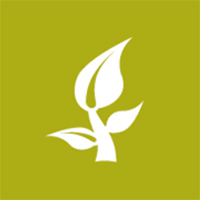2013 Projects - Now in our third year of project selection, The Social Enterprise in Developing Economies class was introduced to 5 new project hosts across five countries within three continents. Our teams expanded further into the filed with research in microcredit, renewable energy, agri-business, and water filtration. This year’s project hosts include:
- Sunlabob, Loas
- Honey Care, Kenya
- EcoFiltro, Guatemala
- Treebos, Brazil
- Eko, India
Sunlabob – Vientiane, Laos
 Sunlabob Renewable Energy is a Laos-based company specializing in renewable energy and clean water solutions throughout the developing world. Experts in rural, remote areas, Sunlabob offers a wide range of products and services that achieve one common goal: to enable long-term access to clean energy and water. Established in 2001, the company has expanded far beyond its initial focus in Laos, now providing its integrated expertise of rural electrification to governments, multilateral development agencies, multinational companies, NGOs and private individuals throughout Southeast Asia, India, Africa and the Pacific. The Yale was interested in CEO Andy Schroeter‘s vision for sustainable energy solutions and traveled to Laos to interview and document his work.
Sunlabob Renewable Energy is a Laos-based company specializing in renewable energy and clean water solutions throughout the developing world. Experts in rural, remote areas, Sunlabob offers a wide range of products and services that achieve one common goal: to enable long-term access to clean energy and water. Established in 2001, the company has expanded far beyond its initial focus in Laos, now providing its integrated expertise of rural electrification to governments, multilateral development agencies, multinational companies, NGOs and private individuals throughout Southeast Asia, India, Africa and the Pacific. The Yale was interested in CEO Andy Schroeter‘s vision for sustainable energy solutions and traveled to Laos to interview and document his work.
Student participants: Heshika Deegahawathura, Gregor Hintler, Bianca Rey
Honey Care – Nairobi, Kenya
 Honey Care Africa started its operations in 2000 as an NGO with the aim of connecting environment conservation and supporting rural farmers involved in beekeeping. Honey Care offers hives, beekeeping equipment and training in beekeeping, ultimately offering a ready market by purchasing the honey harvested at fair trade prices. Indeed, Honey Care Africa has a rich history as a pioneer in the honey industry in Africa and honey enterprise in general. The Yale team joined CEO Madison Ayer as he embarked on transitioning from an NGO to an FMCG company with a focus on expanding the business and introducing new products in the wider market.
Honey Care Africa started its operations in 2000 as an NGO with the aim of connecting environment conservation and supporting rural farmers involved in beekeeping. Honey Care offers hives, beekeeping equipment and training in beekeeping, ultimately offering a ready market by purchasing the honey harvested at fair trade prices. Indeed, Honey Care Africa has a rich history as a pioneer in the honey industry in Africa and honey enterprise in general. The Yale team joined CEO Madison Ayer as he embarked on transitioning from an NGO to an FMCG company with a focus on expanding the business and introducing new products in the wider market.
Student participants: Jane Bang, Maria Kouneli, Christina Wang
EcoFiltro – Ciudad Vieja, Guatemala
 Ecofiltro got its start over 20 years ago and has operated as a “non-profit” for most of its history. To address the lack the lack of pure water in the rural Guatemalan households, the company was building a production company to manufacture affordable natural clay water filter systems. The Yale team was keen to learn more about the decision to employ a subsidy business model where urban sales of filters would serve to finance the distribution of rural filters at an affordable price. Ecofiltro S.A. also at this factory was capable of producing 8,000-10,000 filters per month. The new factory opened in April 2012 and has distributed over 250,000 filters throughout Guatemala.
Ecofiltro got its start over 20 years ago and has operated as a “non-profit” for most of its history. To address the lack the lack of pure water in the rural Guatemalan households, the company was building a production company to manufacture affordable natural clay water filter systems. The Yale team was keen to learn more about the decision to employ a subsidy business model where urban sales of filters would serve to finance the distribution of rural filters at an affordable price. Ecofiltro S.A. also at this factory was capable of producing 8,000-10,000 filters per month. The new factory opened in April 2012 and has distributed over 250,000 filters throughout Guatemala.
Student participants: Ali Friedman, John Gerlach, Vrishti Mongia
Treebos – Brazil
 Treebos uses a vertically integrated model to reorganize the financing, production and produce distribution of small farms. Treebos.com enables web-users to plant virtual trees online that represent actual fruit trees that Treebos plants in small farms in Brazil. Subscribers watch their trees grow online and get regular updates. They also purchase subscriptions that deliver the organic fruit sourced from these trees or local sustainable farms to their homes and offices. This creates a new source of web-aggregated capital that subsistence farmers use to rebuild their agri-businesses using organic methods and increase their income. Treebos tries to address the massive inefficiencies in Brazilian agriculture and supply chains where up to 40% of produce gets lost on the way from the farm to table and the farmer gets only around 7% of the final market price. The Yale team worked directly with founder Murilo Ferraz and was particularly motivated to help him establish the “gamification” model for donors to grow virtual trees online.
Treebos uses a vertically integrated model to reorganize the financing, production and produce distribution of small farms. Treebos.com enables web-users to plant virtual trees online that represent actual fruit trees that Treebos plants in small farms in Brazil. Subscribers watch their trees grow online and get regular updates. They also purchase subscriptions that deliver the organic fruit sourced from these trees or local sustainable farms to their homes and offices. This creates a new source of web-aggregated capital that subsistence farmers use to rebuild their agri-businesses using organic methods and increase their income. Treebos tries to address the massive inefficiencies in Brazilian agriculture and supply chains where up to 40% of produce gets lost on the way from the farm to table and the farmer gets only around 7% of the final market price. The Yale team worked directly with founder Murilo Ferraz and was particularly motivated to help him establish the “gamification” model for donors to grow virtual trees online.
Student participants: Katy Aragon, Jonathan Lao, Abhinav Nayar
Eko – India
 In 2007, Eko was established with a mission of enabling any financial transaction for anybody from anywhere. Eko now runs one of the largest and the most efficient domestic money transfer services in the country in partnership with banks and also has a Prepaid Payment Instrument license from the Reserve Bank of India. The company has built a technology-driven retail network allowing relevant partner merchants access to faster payments from retail customers. It does this through its state-of-the-art portal “Connect” that binds together a diverse network of retailers, distributors, network partners and managers to offer seamless money transfer and payment services to customers.
In 2007, Eko was established with a mission of enabling any financial transaction for anybody from anywhere. Eko now runs one of the largest and the most efficient domestic money transfer services in the country in partnership with banks and also has a Prepaid Payment Instrument license from the Reserve Bank of India. The company has built a technology-driven retail network allowing relevant partner merchants access to faster payments from retail customers. It does this through its state-of-the-art portal “Connect” that binds together a diverse network of retailers, distributors, network partners and managers to offer seamless money transfer and payment services to customers.
Currently, this network consists of +20k retailers across 50 cities. The Yale team was deeply interested in microcredit and wanted to understand more about the challenges of establishing the retail partner model within an increasingly competitive marketplace.
Student participants: Jungwon Byun, Kaity Hsieh, Ishan Sinha
